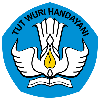The Implementation of Preference Ranking-based Spam Filtering in the Design of Company Complaint Reporting System
Abstract
A company complaint system is an important tool for identifying and resolving workplace problems. By implementing transparent, supportive and responsive mechanisms, companies can create a positive work culture and empower employees to report concerns and contribute to overall organizational improvement. However, in the company's complaint system, there are still spam complaints so the process of receiving complaints in a system becomes difficult. The methodology used for research related to spam complaints is TF-IDF Preference Ranking, which involves determining the order of spam and non-spam complaint categories based on similarity values to determine complaint categories based on weighted documents. Blackbox testing of the research results shows that TF-IDF Preference Ranking can filter spam effectively by comparing complaint data with the system's spam dataset. The test results show that 90% of the spam test data can be categorized as spam and 95% of the functional requirements have passed the functional test and are in accordance with user needs.
Downloads
References
I. D. N. Times and Y. D, “Perusahaan: Pengertian, Unsur, Bentuk, Jenis, dan Tujuan,” IDN Times. Accessed: Aug. 26, 2023. [Online]. Available: https://www.idntimes.com/business/economy/yunisda-dwi-saputri/apa-itu-perusahaan
Nofyat, A. Ibrahim, and A. Ambarita, “sistem informasi pengaduan pelanggan air berbasis website pada pdam kota ternate,” 2018.
L. Marlinda and S. S.W., “sistem recommender program studi fmipa menggunakan metode preference rangkin organization for enrichment evaluation (promethee),” in PROSIDING SEMINAR NASIONAL FISIKA (E-JOURNAL) SNF2017 UNJ, Pendidikan Fisika dan Fisika FMIPA UNJ, 2018, pp. SNF2017-CIP-55-SNF2017-CIP-64. doi: 10.21009/03.SNF2017.02.CIP.08.
B. Damanik and S. Sibagariang, “penerapan preference ranking organization method for enrichment evaluation (promethee) dalam evaluasi kinerja dosen (studi kasus: univ. sari mutiara indonesia),” KOMIK Konf. Nas. Teknol. Inf. Dan Komput., vol. 2, no. 1, Oct. 2018, doi: 10.30865/komik.v2i1.924.
H. Herwanto, N. L. Chusna, and M. S. Arif, “Klasifikasi SMS Spam Berbahasa Indonesia Menggunakan Algoritma Multinomial Naïve Bayes,” J. MEDIA Inform. BUDIDARMA, vol. 5, no. 4, p. 1316, Oct. 2021, doi: 10.30865/mib.v5i4.3119.
B. Hartanto, S. Harjanto, and S. Tomo, “sistem informasi penentuan guru baru di sekolah dengan menerapkan metode preference ranking organization method for enrichment evaluation,” vol. 2, no. 1, 2023.
R. Dwiyansaputra, G. S. Nugraha, F. Bimantoro, A. Aranta, and J. Majapahit, “deteksi sms spam berbahasa indonesia menggunakan tf-idf dan stochastic gradient descent classifier,” vol. 3, no. 2, 2021.
Herfandi, Yuliadi, S. N. Abdillah, and E. S. Susanto, “rancang bangun sistem informasi pengaduan layanan sarpras di universitas teknologi sumbawa berbasis web,” J. Inform. Teknol. Dan Sains, vol. 3, no. 1, pp. 308–315, Feb. 2021, doi: 10.51401/jinteks.v3i1.984.
Copyright © 2023 FTII-UHAMKA. - All rights reserved Seminar Nasional TEKNOKA ke - 8, Vol. 8, 2023
ISSN No. 2502-8782
W. N. Chandra, G. Indrawan, and I. N. Sukajaya, “Spam Filtering Dengan Metode Pos Tagger Dan Klasifikasi Naïve Bayes”.
A. Hermanto, I. Dzikria, and F. Narulita Friska, “Peningkatan Kompetensi Petugas Klinik
Downloads
Published
How to Cite
Issue
Section
License
Copyright (c) 2024 Prosiding Seminar Nasional Teknoka

This work is licensed under a Creative Commons Attribution-NonCommercial-ShareAlike 4.0 International License.






 Supported by :
Supported by :



